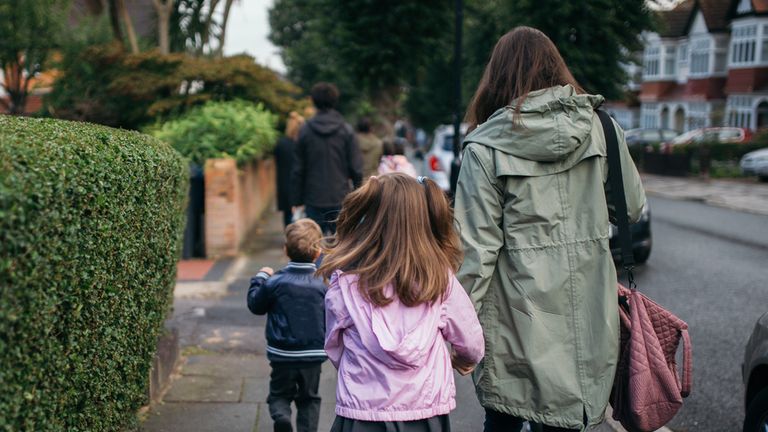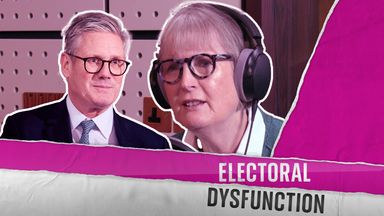The number of children missing at least half their time at school is 160% higher than before the COVID pandemic, new data shows.
A total of 157,038 children were severely absent from schools in England in the spring term (January to March) this year - an increase of 12.4% compared with the same term in 2023, the latest government has revealed.
"Severely absent" is defined as a child missing 50% or more sessions at primary, secondary and special state schools in England.
Politics latest: No 10 issues warning amid reports of cabinet splits over spending cuts
The latest number is 160% higher than before the COVID pandemic, when the government closed all schools in March 2020. A total of 60,244 children were severely absent in autumn 2019, the last full term before the pandemic.
One in five children was "persistently absent" this spring term, when they missed 10% or more school sessions.
That is a 5.7% increase compared with last year's spring term and 67.8% higher than before the pandemic.
When compared with last year, statistics for the latest autumn and spring terms show absence is down from 7.3% in 2022/23 to 6.9% in 2023/24.
But they remain above pre-pandemic levels.

Beth Prescott, programme lead at the Centre for Social Justice, said: "School absence has now become endemic, with parents often thinking it is not essential for children to attend school every day.
"Without faster and further action, like the national rollout of attendance mentors and a parental participation strategy, we will be picking up the pieces from this unfolding social disaster for years to come."
Read more:
Will there be a revolt over the budget?
Cabinet ministers must 'accept' budget cuts, says Harman
Paul Whiteman, general secretary at the school leaders' union NAHT, said schools are working "incredibly hard to boost attendance".
"However, the reasons for absence often lie beyond the school gates, and it is clear schools need more support to tackle unauthorised absence and the often deep-rooted issues facing children and families," he said.
"These include everything from sickness and mental health problems to poverty and other social challenges."
He accused "previous governments" of failing to properly fund services like social care and child and adolescent mental health services (CAHMS), and cutting education welfare officer roles.
Disclaimer: The copyright of this article belongs to the original author. Reposting this article is solely for the purpose of information dissemination and does not constitute any investment advice. If there is any infringement, please contact us immediately. We will make corrections or deletions as necessary. Thank you.



